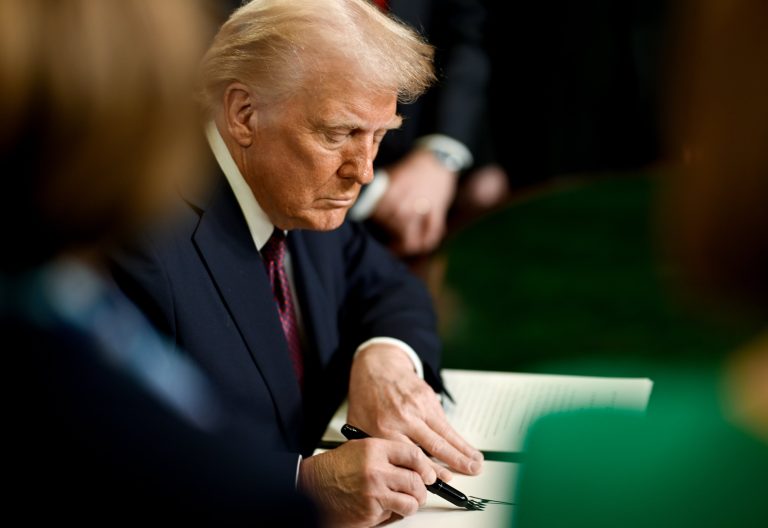Trump’s expansionist agenda driving global insecurity

Since returning to the White House a month ago, President Donald Trump’s slew of executive orders has thrown the world into panic mode. From shutting down USAID – the world’s largest aid donor – to the rhetoric of acquiring Gaza, intense geopolitics have characterised the global landscape, causing widespread uncertainty.
From expressing his wish to acquire Greenland, suggesting Canada become the 51st US state, renaming the Gulf of Mexico to the Gulf of America, and proposing the US take over Gaza, Trump’s pronouncements signal an alarming shift from established international norms.
These proposals challenge the fundamental principles of sovereignty, self-determination, and international law, while revealing a transactional approach to global governance that prioritizes economic and strategic gains over legal and ethical considerations.
These rhetorics demonstrate that coercion has taken center stage as a negotiation tactic at a time when most countries are embracing collaboration and multilateralism to address the world’s ongoing challenges.
One of the most ridiculed and internationally condemned suggestions was that Washington would take over Gaza, displacing its population and redeveloping the territory under American control. This move violates both international laws and the sovereignty of the Palestinian people.
United Nations Secretary-General Antonio Guterres, speaking at the 38th African Union Summit, stated: “A resumption of hostilities must be avoided at all costs. The Palestinian people have suffered too much. I welcome efforts by the parties to abide by the ceasefire agreement – and urge action for a permanent ceasefire and the release of all hostages. Peace is possible in the Middle East – and that starts with tangible, irreversible, and permanent progress toward the two-state solution. A viable, sovereign Palestinian state living side by side in peace and security with Israel is the only sustainable pathway for Middle East stability.”
Guterres has not only rejected this proposal but Egyptian President Abdel Fattah el-Sisi is also reportedly against the idea, with the possibility that he may refuse to travel to Washington for talks with Trump. International laws prohibit any country, regardless of its power, from unilaterally seizing another nation’s territorial boundaries. Such a move could exacerbate global insecurity, particularly given the unresolved Russia-Ukraine conflict.
On the issue of Moscow-Kyiv relations, Trump’s discussions with Russian President Vladimir Putin have alarmed Washington’s traditional allies, particularly the European Union, which has insisted that no deals should be made without their involvement. Dutch Defence Minister Ruben Brekelmans emphasized, “There is no option to not be at the table, because we are very important in the actual implementation of those security guarantees.”
These rejections of Trump’s proposals suggest that most countries prefer a multilateral approach to global issues, meaning isolationism is increasingly out of place in today’s world. Leaders must collaborate to tackle the challenges facing the globe, and their actions should not incite panic across the world.
Before proposing to take over Gaza, Trump’s rhetoric surrounding the Panama Canal and Greenland further highlighted his desire to reassert US dominance over critical global trade routes. His remarks about reclaiming control of the Panama Canal have raised tensions in Latin America, where US influence remains a contentious issue.
Similarly, Trump’s interest in Greenland is rooted in broader geopolitical concerns, particularly as China and Russia increase their presence in the Arctic. Control over these strategic waterways and territories remains central to US foreign policy, especially as global shipping increasingly bypasses traditional chokepoints like the Suez and Panama canals.
— The writer is a Journalist and Communications Consultant










